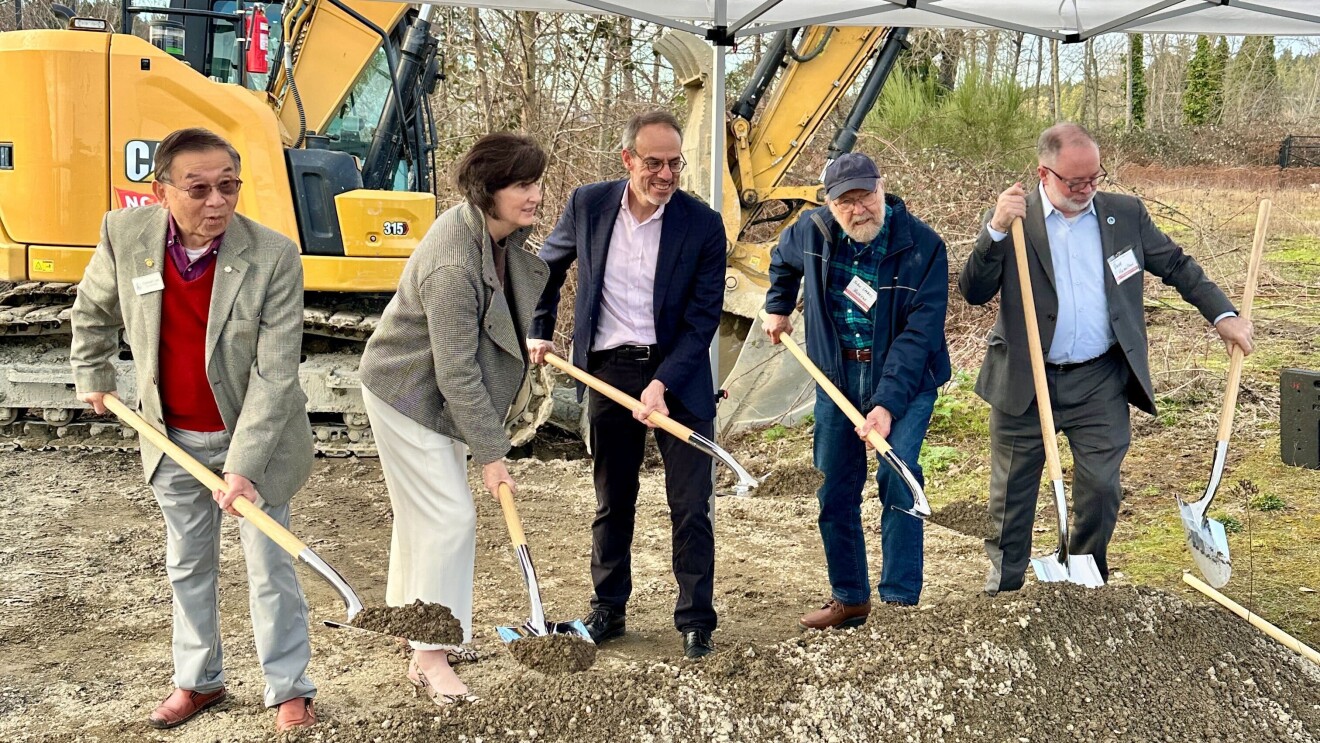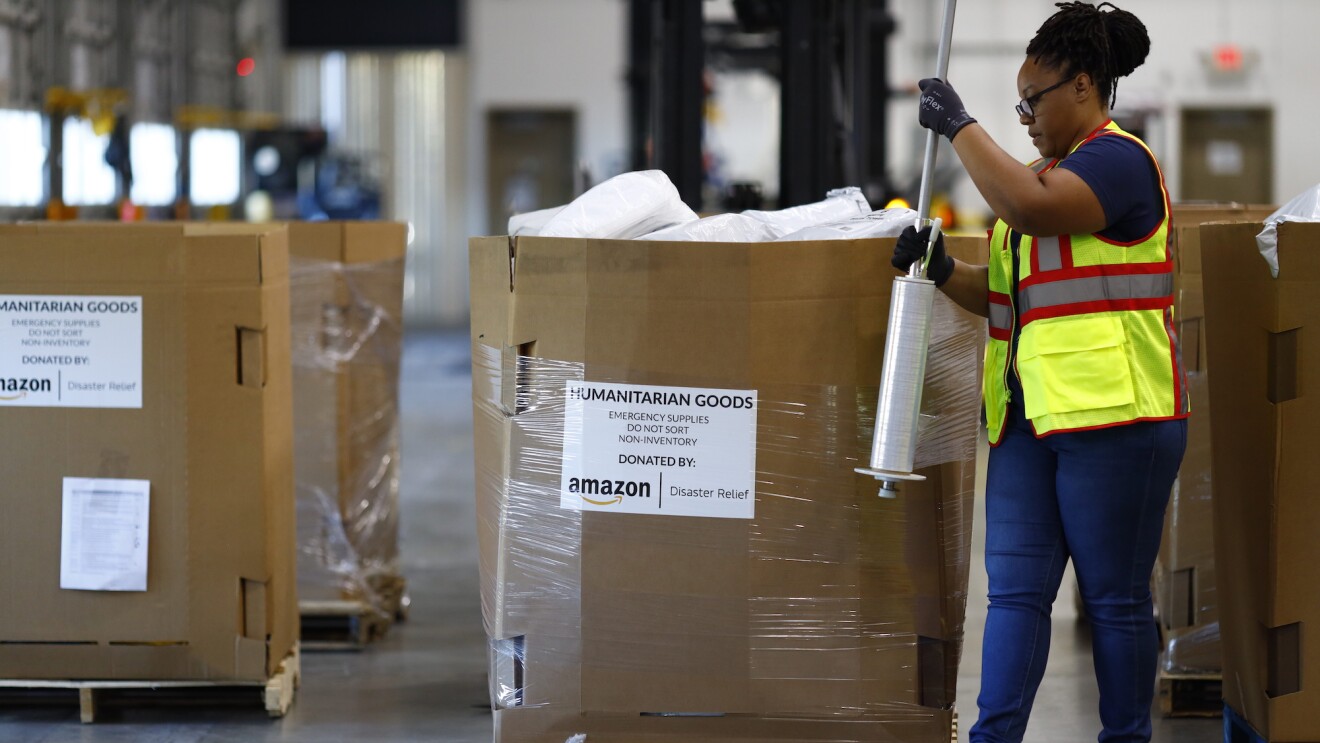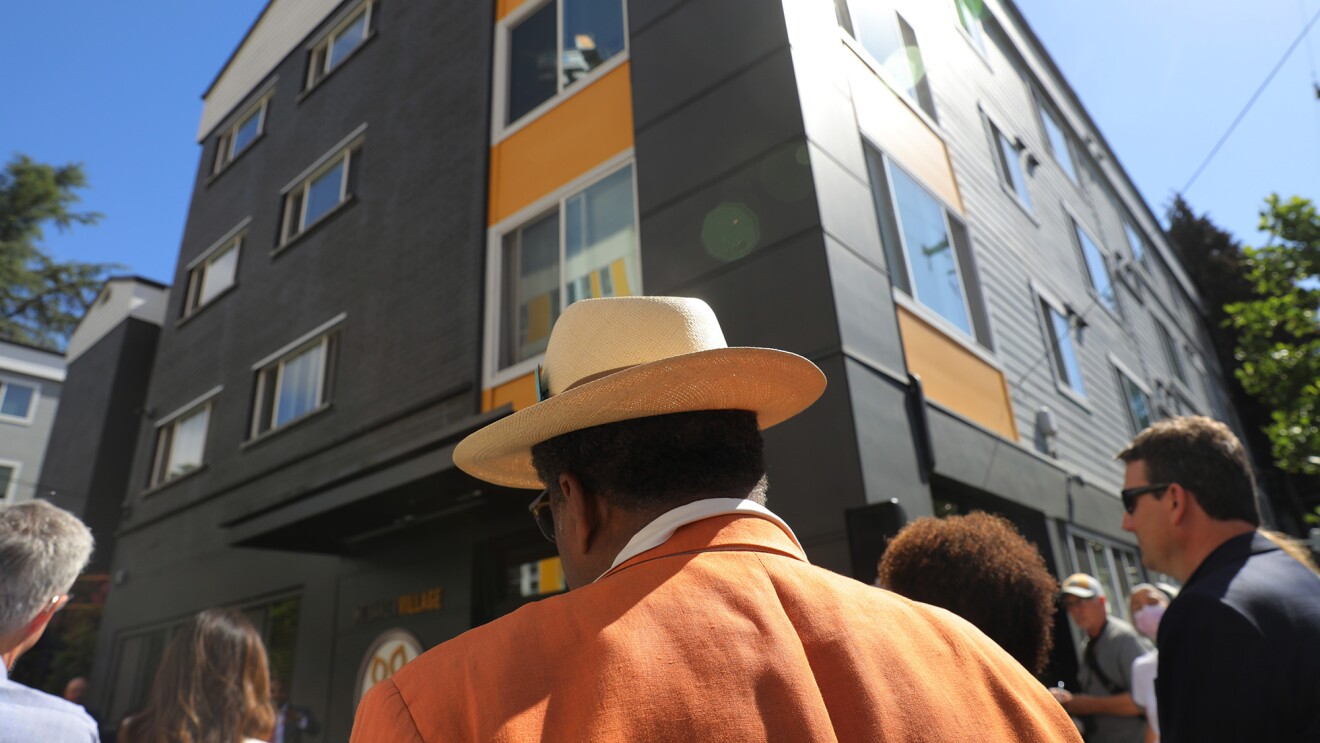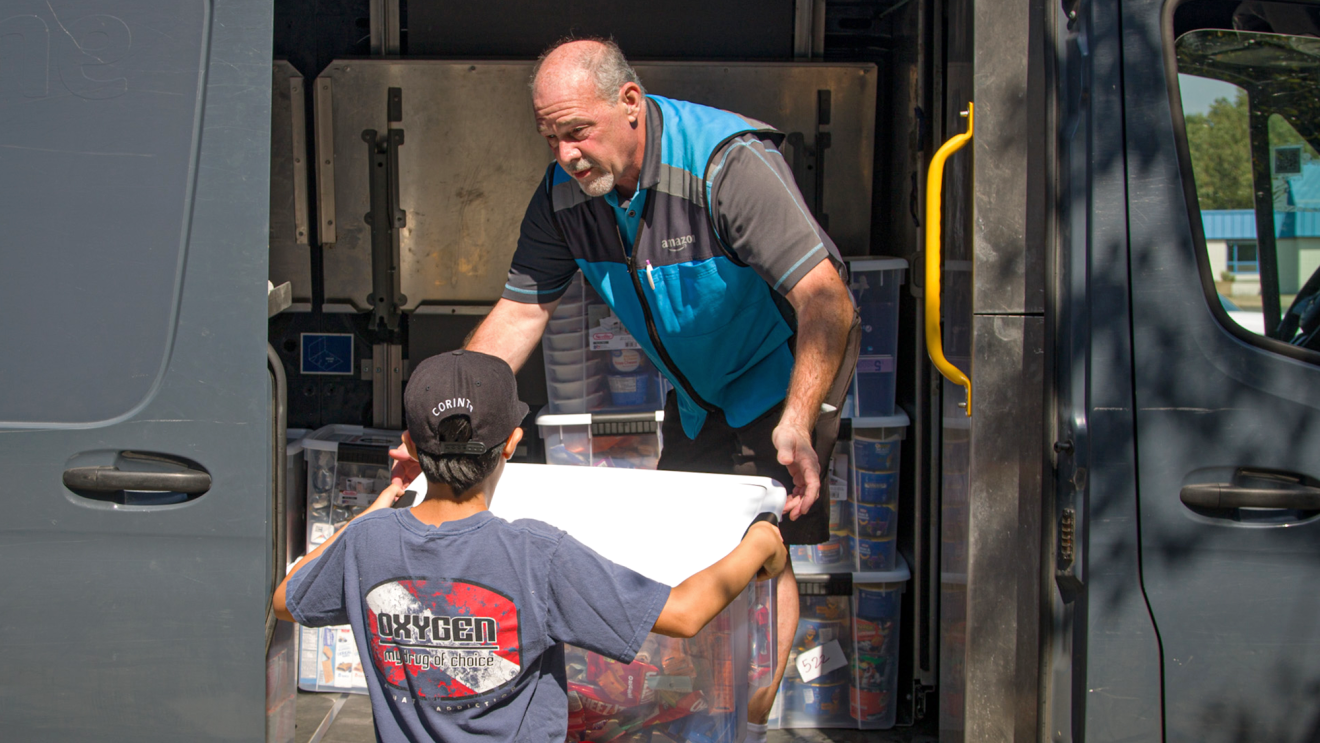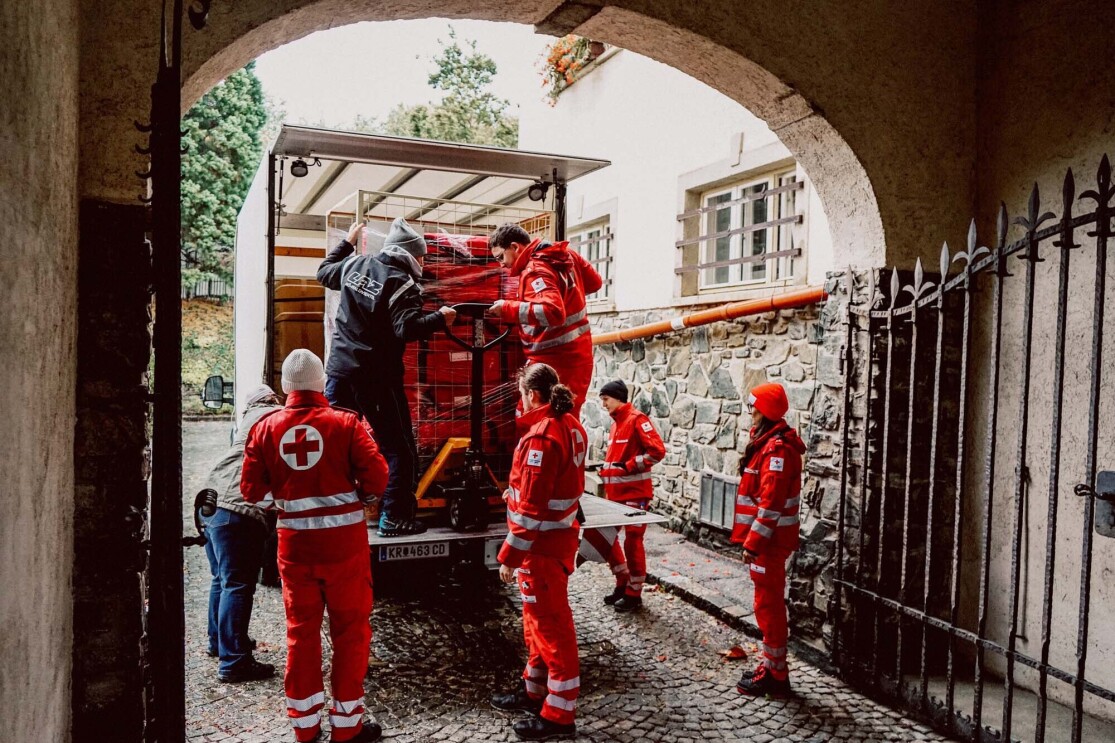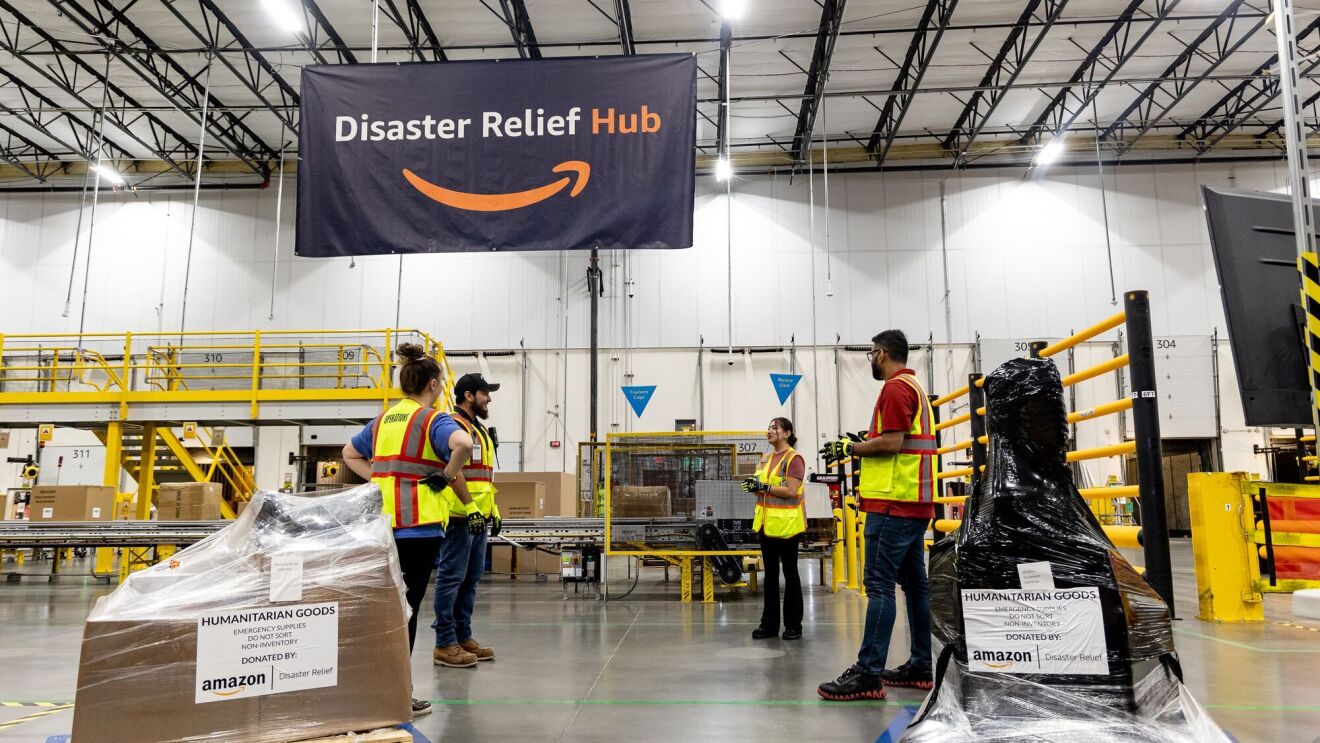Dave Hill, senior principal of executive recruiting, knows that homelessness can affect any family—regardless of socioeconomic background, support system, or resources. To underscore how it can hit any family, Hill shared a deeply personal story about his daughter’s struggles with homelessness, while presenting to his organization at Amazon. Hill’s daughter is not alone in her experience.
According to The U.S. Council of Economic Advisers 2019 State of Homelessness Report, over half a million people go homeless on any single night in the U.S., with highest rates on the west coast and northeastern states.
Mo Malakoutian, a senior program manager at Amazon, was involved in community volunteer work for years, but did not feel he had a natural way to share his experience and engage his colleagues in his passion for giving back. That changed in June 2019, when Amazon announced a company match for employee contributions to 20 Seattle, WA and Arlington, VA region nonprofits. The non-profits were selected for having existing champions within Amazon, as well as support from customers through AmazonSmile. Each of the nonprofits provides housing, shelter, or essential services to families, veterans, and single adults.
Amazon committed to matching donations dollar-for-dollar through the end of 2019. In total, the match campaign resulted in $9 million in donations to 20 nonprofits–including contributions from around the world.
Malakoutian encouraged his colleagues to support the nonprofits selected by Amazon, as he has been doing. He spoke about the matching campaign with just about everyone he works with at the company, and helped lead a fireside chat with representatives from two of the nonprofits—Hopelink and Wellspring Family Services.
“Family homelessness is often hidden away from plain view,” said Malakoutian. “This organization (Wellspring) offers, among other services, a baby boutique, housing, parent-child services, and an early learning centerwhere they provide a safe, stable learning environment for children who have experienced the trauma of homelessness.”
Affinity groups are voluntary, employee-led groups designed to foster diversity and inclusion and to strengthen networking and community participation.
Amazonians get involved
Malakoutian was not the only Amazonian to build awareness and get coworkers excited to contribute. Sarita Schaffer, senior UX designer on the Alexa News team, took a similar approach—she leaned into her involvement with the Latinos@Amazon affinity group. Schaffer, who worked in the nonprofit sector before joining Amazon, was keenly aware of how each dollar counts—especially for small and mid-sized nonprofits like those supported by the campaign. She opted to send a personal, sincere email and was not surprised by the positive response.
Malakoutian was not the only Amazonian to build awareness and get coworkers excited to contribute. Sarita Schaffer, senior UX designer on the Alexa News team, took a similar approach—she leaned into her involvement with the Latinos@Amazon affinity group. Schaffer, who worked in the nonprofit sector before joining Amazon, was keenly aware of how each dollar counts—especially for small and mid-sized nonprofits like those supported by the campaign. She opted to send a personal, sincere email and was not surprised by the positive response.
“A lot of research has gone into understanding why people donate, and it turns out that giving is highly social. We’re moved more by personal stories than facts and figures,” said Schaffer. “We’re more likely to give to organizations that our friends, families, and coworkers vouch for. We give more when we see others give or receive gentle encouragement from someone we know.”
Jennifer Cast, VP of specialty recruiting highlighted the employee match campaign at her organization’s All-Hands meeting, where Dave Hill spoke about his daughter’s struggle with homelessness.
“I felt deep respect for Dave for sharing his experience with us. It was heartbreaking,” said Cast. “Hearing his gratitude for the many organizations that are helping his family member stay alive and giving him hope deepened my commitment to supporting Amazon’s employee match.”
Hill’s personal story and the match campaign inspired Cast and her senior leadership team to double the match up to a specified amount, encouraging their team to donate because their funds would stretch even further.
“Participation in the extra match was optional. We set a 50% team participation goal, to make it clear that we didn’t expect everyone to participate,” said Cast. No donation amount was too small. “I made it clear in our announcement, and all subsequent emails, that a donation of any size counted toward the match,” she said.
Making a difference
The employee contribution match builds on Amazon’s ongoing engagement with its nonprofit partners. The company's in-kind and cash donations have helped build a new family shelter within an Amazon building for Mary’s Place, and classroom and restaurant space for FareStart’s job training program for people experiencing homelessness or living in poverty. The collective value of these donations, including annual rent, is more than $130 million, with Mary’s Place alone to receive $100 million in in-kind and cash donations over the next 10 years.
The employee contribution match builds on Amazon’s ongoing engagement with its nonprofit partners. The company's in-kind and cash donations have helped build a new family shelter within an Amazon building for Mary’s Place, and classroom and restaurant space for FareStart’s job training program for people experiencing homelessness or living in poverty. The collective value of these donations, including annual rent, is more than $130 million, with Mary’s Place alone to receive $100 million in in-kind and cash donations over the next 10 years.
Before the employee match even began, Amazon donated $5 million to Plymouth Housing to provide permanent supportive housing for people experiencing homelessness in Seattle and $3 million to the Arlington Community Foundation to increase access to affordable housing for low-income families and veterans.
By the time the campaign closed, thousands of Amazonians around the world made donations. Malakoutian believes that this form of giving is the start of something bigger for Amazonians.
“One person may think they can’t make a difference because their donation is small,” said Malakoutian. “But one person can create awareness and get others to donate. Any contribution can help make real change.”
Malakoutian hopes the employee match campaign inspires other Amazonians to volunteer in their communities. Cast believes that we can all, at the least, find time to give back.
“There are two barriers to giving: time and money. We can all find time to contribute, even if it’s just a few hours, a couple of times a year,” said Cast. “And a donation of any amount helps—thousands of $10 donations add up to a meaningful amount,” she said.
, including the nonprofits in the Seattle and Arlington regions that benefited from the campaign.
Trending news and stories


